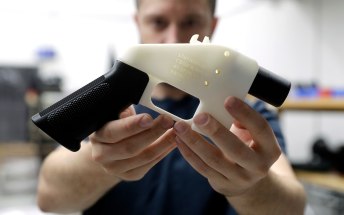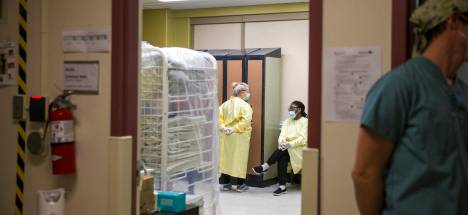Lack of health-care centre security, lack of respect
Read this article for free:
or
Already have an account? Log in here »
To continue reading, please subscribe:
Monthly Digital Subscription
$0 for the first 4 weeks*
- Enjoy unlimited reading on winnipegfreepress.com
- Read the E-Edition, our digital replica newspaper
- Access News Break, our award-winning app
- Play interactive puzzles
*No charge for 4 weeks then price increases to the regular rate of $19.00 plus GST every four weeks. Offer available to new and qualified returning subscribers only. Cancel any time.
Monthly Digital Subscription
$4.75/week*
- Enjoy unlimited reading on winnipegfreepress.com
- Read the E-Edition, our digital replica newspaper
- Access News Break, our award-winning app
- Play interactive puzzles
*Billed as $19 plus GST every four weeks. Cancel any time.
To continue reading, please subscribe:
Add Free Press access to your Brandon Sun subscription for only an additional
$1 for the first 4 weeks*
*Your next subscription payment will increase by $1.00 and you will be charged $16.99 plus GST for four weeks. After four weeks, your payment will increase to $23.99 plus GST every four weeks.
Read unlimited articles for free today:
or
Already have an account? Log in here »
Hey there, time traveller!
This article was published 13/04/2023 (972 days ago), so information in it may no longer be current.
It’s little wonder nurses are leaving Manitoba’s health-care system in droves.
The provincial government’s failure to staff hospitals with specially trained security officers to protect front-line workers from on-the-job violence is another in a long list of reasons.
Given the abuse nurses and other health-care staff have endured from the provincial Tory government in recent years — including unacceptably long delays in negotiating collective agreements, increased forced overtime, severe staff shortages, budget cuts and a botched hospital reorganization plan — why would anyone want to work at a Manitoba hospital these days?
The latest evidence the Stefanson government doesn’t value front-line health-care workers: four years after announcing hospitals would be staffed with institutional safety officers — security personnel with expanded powers and additional training — not a single one has been hired.
The Progressive Conservative government introduced amendments to the Police Services Act in March 2019 to create ISOs. The proposed legislation, originally touted as an urgent need to improve hospital safety in the face of rising violence in health-care facilities, received royal assent June 3, 2019.
However, it took over two years to proclaim it into law. After the Tories won their second majority government in September 2019, they put hospital security on the back burner.
Even after the changes were enacted in October 2021, government still dragged its feet.
Under the legislation, ISOs have the powers and protection of peace officers. They can carry handcuffs, batons and pepper spray.
They also have the power of arrest under the Intoxicated Persons Detention Act and the Petty Trespasses Act. That means they can apprehend intoxicated people who pose a threat to patients and staff, and arrest trespassers on hospital property (including in parking lots, where some staff have reported feeling unsafe).
ISOs can respond immediately to threats of violence and hold suspects in custody for police; regular security guards can’t do that. Not only would it improve hospital security, it would take pressure off local law enforcement.
Under the legislation, ISOs have the powers and protection of peace officers. They can carry handcuffs, batons and pepper spray.
Under provincial regulations, ISOs must be trained in public safety, crime prevention, arrests, searches and seizures, use of force and officer safety, note-taking, court preparation and mental health awareness. They must wear distinctive uniforms with “institutional safety officer” displayed on the chest.
So why hasn’t government hired ISOs for hospitals? Because it’s not a priority for it. If it were, ISOs would have been in place at health facilities long ago.
By contrast, the University of Manitoba developed its ISO program after the legislation was enacted in 2021. It plans to deploy the new officers on campus by summer.
The Stefanson government gives lip service to hospital safety but doesn’t act with urgency on it. It makes excuses instead.
The Winnipeg Regional Health Authority says it can’t proceed with the ISO program until Shared Health (the faceless, Tory-created bureaucracy that controls most health-care services in the province) has a safety plan in place for hospitals.
The province says that’s been delayed because of the COVID-19 pandemic (an annoyingly overused excuse). The pandemic didn’t stop the U of M from getting its ISO program up and running.
MIKE DEAL / FREE PRESS FILES In the end, the buck stops with Premier Heather Stefanson, the health minister and justice minister.
As usual, a Free Press request earlier this month for an interview with someone at Shared Health to discuss the matter was denied. Ministers and senior government officials rarely do interviews anymore. There’s almost no public accountability in the provincial government.
In the end, the buck stops with Premier Heather Stefanson, Health Minister Audrey Gordon and Justice Minister Kelvin Goertzen. It is up to them to ensure Shared Health, WRHA and hospital management deploy ISOs in health-care facilities.
They have failed to do so.
The issue of safety and security in hospitals has been raised repeatedly by unions and front-line workers. They have released workplace safety data, shared individual experiences, and pleaded with government to make changes. Yet, the province has not made it a priority.
It shows an utter lack of respect for front-line workers and puts staff and patient safety at risk. It’s easy to see why so many health-care professionals have left the government-run system.
Who can blame them?
tom.brodbeck@freepress.mb.ca

Tom Brodbeck is an award-winning author and columnist with over 30 years experience in print media. He joined the Free Press in 2019. Born and raised in Montreal, Tom graduated from the University of Manitoba in 1993 with a Bachelor of Arts degree in economics and commerce. Read more about Tom.
Tom provides commentary and analysis on political and related issues at the municipal, provincial and federal level. His columns are built on research and coverage of local events. The Free Press’s editing team reviews Tom’s columns before they are posted online or published in print – part of the Free Press’s tradition, since 1872, of producing reliable independent journalism. Read more about Free Press’s history and mandate, and learn how our newsroom operates.
Our newsroom depends on a growing audience of readers to power our journalism. If you are not a paid reader, please consider becoming a subscriber.
Our newsroom depends on its audience of readers to power our journalism. Thank you for your support.












